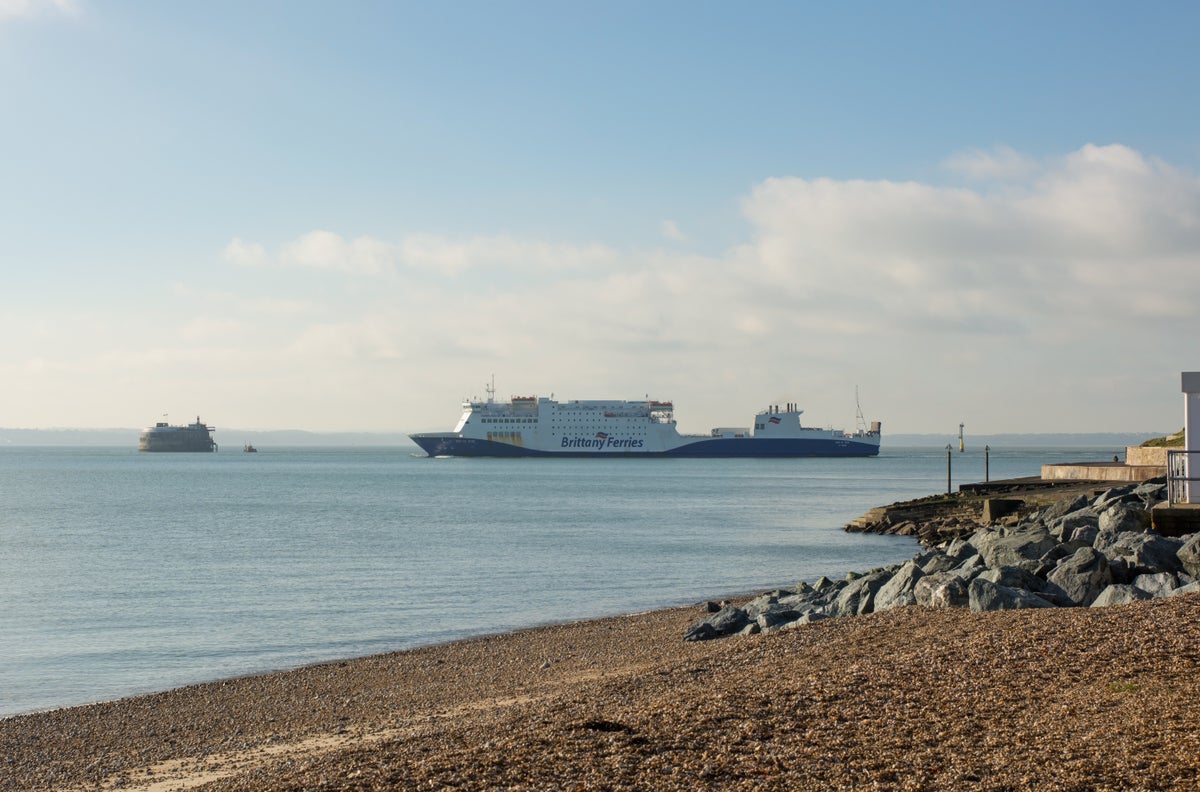
Brittany Ferries says the number of incoming travellers from France to Portsmouth has more than halved during 2022, compared to figures from 2019.
There were 338,000 arrivals at Portsmouth ferry port in 2019, while that number was only 155,000 in 2022, the ferry operator told BBC News.
The company blamed “Brexit-related friction” for this decline in the usual passenger numbers coming to the UK.
“We used to have loads of coaches parking outside with happy schoolchildren enjoying Portsmouth, going up to London and we really don’t see much of that any more,” said Brittany Ferries spokesman Nigel Wonnacott.
He cited the need to travel with a full passport rather than an ID card as one reason for inbound travellers being put off.
“Post-Brexit, French travellers are required to travel [to the UK] with a passport so it’s expensive for them to get a passport because it’s about 90 euros (£78), and it’s also a big administrative burden.”
“It’s the loss of a significant number of potential travellers and all the richness that they bring economically and culturally,” Mr Wonnacott adds.
However, longer routes such as from the UK to Spain “have seen a significant increase in passengers numbers”, says a Brittany Ferries press release published on the company’s website.
There has also been a 46 per cent increase in passengers travelling from France to Ireland from 2019 to 2022.
“The last 12 months have painted an optimistic picture on many routes, but concern on others,” said a statement from the operator.
Brittany Ferries CEO Christophe Mathieu explains in the same press release: “While our long routes have surged forwards, the Channel is a real concern for Brittany Ferries and our partners.”
“But the post-Brexit imposition of passports for French passengers visiting the UK has dramatically hit this side of our business too,” adds Mr Mathieu.
“What is needed now is a concerted push from tourist bodies in France and the UK to boost volumes next year and to aid the recovery of this market for us and other companies operating in the tourism sector,” concludes Mr Mathieu.







